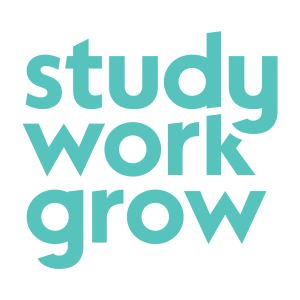University as we know it today is a system that has its origins in Europe. As a result, the vast amount of knowledge passed down over thousands of years by Indigenous people is often left out when courses are developed. In celebration of National Reconciliation Week in Australia, we are taking a look at how Indigenous perspectives have been integrated into university curricula, plus see some cool courses that delve a bit deeper into Indigenous culture and knowledge.
Integrating Indigenous knowledge
There has been a big push in recent years to acknowledge and integrate Indigenous knowledge and perspectives to all walks of life, not just to education. It’s a call for all of us to acknowledge that Indigenous ways of learning and being are just as valuable and meaningful as Western ways. This process is also known as Indigenisation.
Indigenisation of university curriculum doesn’t just benefit Indigenous students; there are lots of benefits for the entire community, such as:
- Increasing Indigenous participation in higher education
- Exposing students to different ways of learning and teaching
- Drawing on Indigenous knowledge and experience to solve important problems
- Heightening awareness of social justice issues
- Supporting Indigenous excellence and innovation
“Education does not just impart information; it shapes who we are and who we might be. Beginning in every classroom, education in Indigenous knowledge systems, histories and cultures is a nation-building exercise.”
Professor Melitta Hogarth, Associate Dean (Indigenous) from the University of Melbourne Faculty of Education
Indigenous courses at university
There are lots of courses out there that have a focus on Indigenous culture or integrate Indigenous knowledge. Here are a few you might like to explore:
Indigenous Science and Knowledges at ANU
As part of the Bachelor of Science (Advanced) (Honours) at the Australian National University, you can choose to major in Indigenous Science and Knowledges, where you’ll learn all about unique Indigenous approaches to science. Learn about the ways Indigenous people manage land and resources, discover the similarities and differences between Indigenous and Western science, and undertake a self-directed research project on a topic that matters to First Peoples.
Indigenous Education at QUT
If you’re thinking of becoming a teacher, you might like to take your education to the next level with QUT’s Graduate Certificate in Education (Indigenous Education). This course will equip you with knowledge on Indigenous ways of teaching and learning, and allow you to integrate Indigenous perspectives and engagement into the classroom.
Pacific and Indigenous Studies at Waikato
At the University of Waikato, you can take the Pacific and Indigenous Studies major as part of a degree in Arts, Social Sciences, or Climate Change. Learn about the histories, experiences, and perspectives of Pasifika and Māori people, and how this knowledge can be used to shape the future of the Pacific region. You’ll also have the opportunity to focus on an area of interest, including arts, politics, environment, journalism, research, history, or justice.
Aboriginal Health at Lethbridge
The University of Lethbridge’s Bachelor of Health Sciences allows you to major in Aboriginal Health, where you’ll learn all about the unique health challenges faced by Indigenous people in Canada and ways you can address these issues. The course allows you to engage with Indigenous leaders and health professionals, learn about Indigenous experiences and values, and gain real-world experience through a practicum.
American Indian and Indigenous Law at Stanford
Stanford Law School provides students with opportunities to learn about and engage in American Indian and Indigenous Law as part of their studies. Discover the unique systems of law and justice practised by Native peoples, how they interact and intersect with the Western legal system, and how to navigate complex legal issues that affect Indigenous people in America.
Find out more
University study is an opportunity to expand your horizons and delve into important topics that shape the world around us. Integrating Indigenous knowledge into university courses can help us to broaden our perspectives, contribute to our communities, and solve problems that affect everyone.
You can read more about university courses and pathways on our website here.


